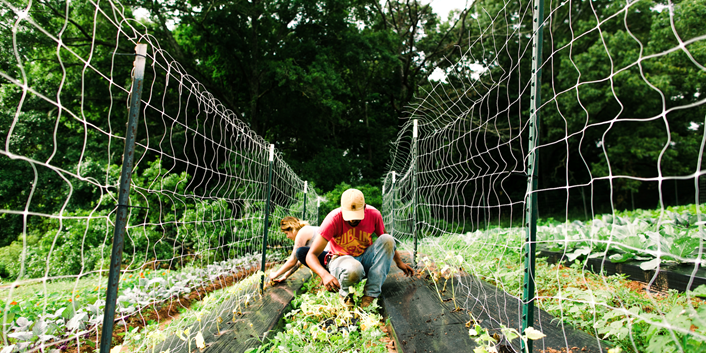Donna Blanton had lived in her Oglethorpe County home for close to 20 years when a farmer bought land near hers and started dumping what’s called soil amendments on the property.
She said she’s fine with the smell of fertilizer. She’s lived in rural Oglethorpe County, near Athens, her whole life, and she knows what farms can smell like.
Not this stuff though; a mix of wastewater from chicken rendering plants, bakeries and other sources.
“This product stinks. It stinks like rotting flesh,” she said.
Blanton said she couldn’t enjoy being outside anymore, and she’d sprint from her car to her front door. But that didn’t completely solve it because the smell also got in the house and in the car.
“You could not go out and cut the grass,” she said. “We would put up a flycatcher bag. And we could fill up a whole bag within a matter of hours.”
She was worried about her well water getting contaminated, too.
Eventually, Blanton and some of her neighbors filed a lawsuit.
That’s an option that may get harder, though, if a law under consideration in the state legislature is passed.
Georgia lawmakers are considering a bill that supporters say is important to agriculture, the state’s largest industry. The proposed law, HB 1150, limits when someone can sue a farmer for creating a nuisance.
Critics argue the proposal threatens private property rights and opens the door to polluting industrial operations.
Farming industry groups voice support for the measure
At a legislative hearing Tuesday morning, Republican state Rep. Robert Dickey, a peach farmer from Musella, said the bill he’s sponsoring is about protecting family farms.
“As a farmer, I worry about a lot of things out there. I worry about the weather; I worry about rain, drought. I worry about market prices. I worry about labor,” he said. “Don’t let farmers have to worry about getting sued left and right doing what they’ve always done.”
Dickey said his concern is about development encroaching on farms, for instance, if a subdivision goes in, and the people who live there don’t like the smell of manure.
Representatives from farming industry groups came out to voice their support at the meeting. The Georgia Poultry Federation and the Georgia Agribusiness Council were there.
Alex Bradford with the Georgia Farm Bureau said the bill is a big deal for the farmers he represents.
“Farming takes a lot of investment, currently, that has increased significantly,” he said. “There’s a lot of external changes around our rural areas that pose a lot of misunderstanding with what goes on in farms.”
‘Our current Right to Farm law is really, really strong’
But Georgia already has a law that addresses those issues. In Georgia, if a farm was there first, someone can’t move in nearby, and then sue to complain about the dust or the smells.
“Our current Right to Farm law is really, really strong,” April Lipscomb, an attorney at the Southern Environmental Law Center, said at the hearing. “I am not aware of a single farm that has been shut down because of nuisances in the state of Georgia.”
She said the proposed law could allow large animal operations with thousands of animals and all the waste that they generate to move in next to existing farms and homes. If they don’t complain within a year, those neighbors wouldn’t be able to do anything about it.
“What this bill does is says that we value newly-arriving industrial-scale animal operations more than we value long-standing Georgians’ private property rights,” Lipscomb said.
Charlotte Swancy, a Gordon County farmer, said at the hearing that she prefers the existing law over the one that’s been proposed.
“We want to be good stewards of the land. And for the most part, especially in Gordon County, that’s been happening,” she said. “But in our county, there was a proposal of bringing in a 150 chicken house operation. And under the current bill, we still have protection to litigate against something like that.”
In Oglethorpe County, Blanton said it turned out the farmer near her house wasn’t following regulations.
Supporters of the new bill say it wouldn’t protect bad actors like him or change any existing environmental laws.
“It protects a farm that is operating properly,” Will Bentley with the Georgia Agribusiness Council said at the hearing. “I’m a farmer as well. So being a steward of the land and air and water and the things that go into agriculture and managing that land is extremely important to me and my family.”
Still, Blanton said the proposed law seems like a problem to her because it took her two years to figure out what was going on near her home, and to try appealing to state and local officials for help before she filed the lawsuit. That’s time people wouldn’t have if the law passes.
“If they only give you one year, I guarantee you that your average person’s not going to be able to find out what’s going on,” she said.
She said she eventually decided to sell her house and move, though that wasn’t easy either because people retracted their offers.
Supporters emphasize that this bill will secure a future for Georgia farms.
A similar law proposed in 2019 didn’t end up passing.









